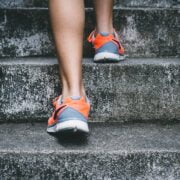
The Power of Sleep and Exercise: How They Work Together for a Healthier You
Sleep and exercise are two essential components of a healthy lifestyle. While they may seem unrelated, there is a strong connection between the two. Both sleep and exercise play crucial roles in maintaining overall health and wellness. In this article, we will explore the benefits of a good night’s sleep for exercise performance, the impact of exercise on sleep quality and duration, the role of sleep in muscle recovery and growth, how exercise can improve sleep disorders and insomnia, the link between sleep and weight management, the importance of sleep for mental health and cognitive function, strategies for combining sleep and exercise for optimal health, and the overall importance of prioritizing both sleep and exercise for a happier, healthier life.
Key Takeaways
- Good sleep improves exercise performance
- Exercise can improve sleep quality and duration
- Sleep is crucial for muscle recovery and growth
- Exercise can help with sleep disorders and insomnia
- Sleep and exercise are important for mental health and cognitive function
The Benefits of a Good Night’s Sleep for Exercise Performance
A good night’s sleep is essential for optimal exercise performance. When we are well-rested, our energy levels are higher, allowing us to perform at our best during physical activity. Lack of sleep can lead to fatigue and decreased endurance, making it more challenging to engage in physical exercise.
Additionally, sleep plays a crucial role in enhancing focus and concentration. When we are well-rested, our cognitive function is improved, allowing us to stay focused on our exercise routine and perform movements with precision. This is especially important for activities that require coordination and balance.
Furthermore, getting enough sleep reduces the risk of injury during exercise. When we are tired, our reaction times are slower, making us more prone to accidents or missteps. By prioritizing sleep, we can ensure that our bodies are well-rested and ready to take on physical challenges safely.
The Impact of Exercise on Sleep Quality and Duration
Exercise has a significant impact on sleep quality and duration. Engaging in regular physical activity can increase the time spent in deep sleep, also known as slow-wave sleep. Deep sleep is essential for restorative processes in the body, such as muscle repair and growth, hormone regulation, and immune system function.
In addition to increasing deep sleep, exercise also improves sleep efficiency. Sleep efficiency refers to the amount of time spent asleep compared to the total time spent in bed. Regular exercise helps regulate our internal body clock, making it easier to fall asleep and stay asleep throughout the night.
Exercise has also been shown to reduce symptoms of sleep disorders such as insomnia. Studies have found that individuals who engage in regular physical activity experience fewer difficulties falling asleep and staying asleep. Exercise can also help alleviate symptoms of sleep disorders such as sleep apnea and restless leg syndrome.
The Role of Sleep in Muscle Recovery and Growth
| Metrics | Description |
|---|---|
| Sleep Duration | The amount of time spent sleeping each night. |
| Sleep Quality | The level of restfulness and restorative properties of sleep. |
| Muscle Recovery | The process by which muscles repair and rebuild after exercise. |
| Muscle Growth | The increase in muscle size and strength over time. |
| Hormone Production | The release of hormones such as testosterone and growth hormone during sleep, which aid in muscle recovery and growth. |
| Inflammation | The reduction of inflammation in the body during sleep, which can aid in muscle recovery. |
| Energy Levels | The impact of sleep on energy levels and the ability to perform exercise and build muscle. |
Sleep plays a crucial role in muscle recovery and growth. During sleep, our bodies undergo various restorative processes that are essential for repairing and building muscle tissue. When we exercise, we create micro-tears in our muscles, and it is during sleep that these tears are repaired.
During deep sleep, the body releases growth hormone, which is responsible for muscle repair and growth. Without adequate sleep, the body’s ability to repair and build muscle tissue is compromised. This can lead to decreased muscle strength and endurance over time.
Furthermore, sleep deprivation can negatively impact protein synthesis, which is essential for muscle growth. When we don’t get enough sleep, our bodies have a harder time synthesizing protein, leading to slower muscle recovery and growth.
How Exercise Can Improve Sleep Disorders and Insomnia
Exercise can be an effective natural treatment for sleep disorders and insomnia. Engaging in regular physical activity has been shown to improve sleep quality and reduce symptoms of insomnia.
Aerobic exercise, such as running or cycling, has been found to be particularly beneficial for improving sleep quality. Aerobic exercise increases the production of endorphins, which are natural mood boosters that can help reduce anxiety and promote relaxation. By reducing anxiety levels, aerobic exercise can make it easier to fall asleep and stay asleep throughout the night.
Strength training exercises, such as weightlifting or resistance training, can also improve sleep quality. Strength training helps to release tension in the muscles, promoting relaxation and reducing muscle stiffness that can interfere with sleep.
It is important to note that the timing of exercise can also impact sleep quality. Exercising too close to bedtime can increase alertness and make it more difficult to fall asleep. It is recommended to finish exercising at least a few hours before bedtime to allow the body to wind down and prepare for sleep.
The Link between Sleep and Weight Management
Sleep plays a crucial role in weight management. Lack of sleep has been linked to weight gain and obesity. When we don’t get enough sleep, our bodies produce more ghrelin, a hormone that stimulates appetite, and less leptin, a hormone that suppresses appetite. This hormonal imbalance can lead to increased food cravings and overeating.
Furthermore, sleep deprivation can affect our metabolism. When we are sleep-deprived, our bodies have a harder time processing glucose, leading to higher blood sugar levels. This can increase the risk of developing insulin resistance and type 2 diabetes.
In addition to hormonal changes and metabolic effects, lack of sleep can also impact our food choices. When we are tired, we are more likely to reach for sugary and high-calorie foods for quick energy. This can contribute to weight gain and make it more challenging to maintain a healthy diet.
The Importance of Sleep for Mental Health and Cognitive Function
Sleep is essential for mental health and cognitive function. Lack of sleep has been linked to an increased risk of developing mental health disorders such as depression and anxiety.
When we don’t get enough sleep, our mood is negatively affected. We may feel irritable, moody, or have difficulty managing stress. Sleep deprivation can also impair our ability to regulate emotions, making it more challenging to cope with daily challenges and setbacks.
Furthermore, sleep plays a crucial role in cognitive function. During sleep, our brains consolidate memories and process information from the day. Without adequate sleep, our ability to concentrate, focus, and retain information is compromised.
Exercise as a Natural Sleep Aid: Tips and Recommendations
Exercise can be an effective natural sleep aid when done correctly. Here are some tips and recommendations for using exercise to improve sleep quality:
1. Choose the right type of exercise: Aerobic exercises such as running, swimming, or cycling are particularly beneficial for improving sleep quality. These activities increase heart rate and release endorphins, promoting relaxation and reducing anxiety.
2. Time your exercise routine: It is recommended to finish exercising at least a few hours before bedtime to allow the body to wind down and prepare for sleep. Exercising too close to bedtime can increase alertness and make it more difficult to fall asleep.
3. Establish a consistent exercise routine: Regularity is key when it comes to using exercise as a sleep aid. Try to exercise at the same time each day to establish a consistent routine that signals your body when it’s time to wind down and prepare for sleep.
4. Practice relaxation techniques: Incorporate relaxation techniques into your pre-sleep routine to enhance sleep quality. This can include activities such as stretching, deep breathing exercises, or meditation.
Strategies for Combining Sleep and Exercise for Optimal Health
Combining sleep and exercise is essential for optimal health and well-being. Here are some strategies for creating a balanced sleep and exercise routine:
1. Prioritize both sleep and exercise: Recognize the importance of both sleep and exercise for overall health and wellness. Make them non-negotiable priorities in your daily routine.
2. Set realistic goals: Set realistic goals for both sleep and exercise. Aim for at least 7-9 hours of quality sleep each night and incorporate at least 150 minutes of moderate-intensity aerobic exercise or 75 minutes of vigorous-intensity aerobic exercise each week.
3. Create a schedule: Plan your sleep and exercise routines in advance. Set specific times for going to bed and waking up, as well as dedicated times for physical activity.
4. Make it enjoyable: Find activities that you enjoy and look forward to. This will make it easier to stick to your exercise routine and make it a more enjoyable part of your day.
5. Overcome barriers: Identify and overcome common barriers to sleep and exercise. This may include creating a relaxing bedtime routine, finding ways to fit exercise into a busy schedule, or seeking support from friends or family members.
Prioritizing Sleep and Exercise for a Happier, Healthier Life
In conclusion, sleep and exercise are two essential components of a healthy lifestyle. They are interconnected and play crucial roles in maintaining overall health and wellness. Prioritizing both sleep and exercise can lead to improved energy levels, enhanced focus and concentration, reduced risk of injury, increased muscle recovery and growth, improved sleep quality, weight management, better mental health, and cognitive function.
By understanding the connection between sleep and exercise and implementing strategies to prioritize both in our daily lives, we can achieve optimal health and happiness. It is important to recognize the importance of sleep and exercise as non-negotiable priorities and make them integral parts of our daily routines. By doing so, we can reap the numerous benefits that come with prioritizing both sleep and exercise for a happier, healthier life.
FAQs
What is the relationship between sleep and exercise?
There is a strong relationship between sleep and exercise. Regular exercise can improve the quality and duration of sleep, while lack of sleep can negatively impact exercise performance and recovery.
How does exercise affect sleep?
Exercise can help regulate the body’s circadian rhythm, leading to better sleep quality and duration. It can also reduce stress and anxiety, which can interfere with sleep. However, exercising too close to bedtime can have a stimulating effect and make it harder to fall asleep.
How does sleep affect exercise?
Getting enough sleep is crucial for exercise performance and recovery. Lack of sleep can lead to fatigue, decreased motivation, and impaired cognitive function, all of which can negatively impact exercise. Additionally, sleep is when the body repairs and rebuilds muscles, so not getting enough sleep can hinder muscle growth and recovery.
How much sleep do I need if I exercise regularly?
The amount of sleep needed varies from person to person, but most adults need 7-9 hours of sleep per night. If you exercise regularly, you may need more sleep to support muscle recovery and overall health.
What are some tips for improving sleep and exercise?
To improve sleep and exercise, it’s important to establish a consistent sleep schedule, avoid caffeine and alcohol before bedtime, and create a relaxing bedtime routine. For exercise, it’s important to find a routine that works for you and to gradually increase intensity and duration over time. It’s also important to listen to your body and take rest days when needed.


















